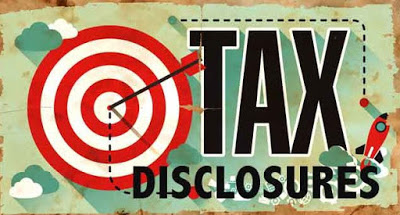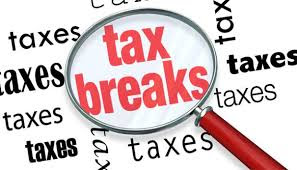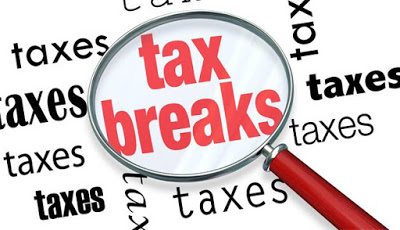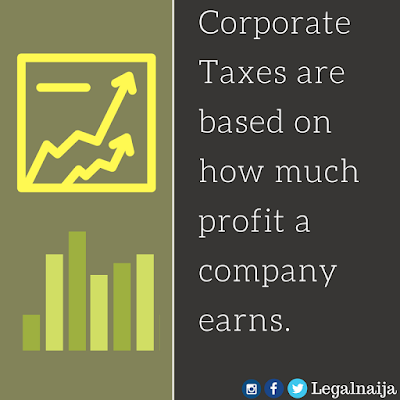
by Legalnaija | Apr 19, 2021 | Uncategorized
Introduction
The Federal Inland Revenue Service (“FIRS”), in a Public Notice on the Deployment of Automated Tax Administration Solution (“the Notice”) published in the Nation Newspaper of March 31, 2021, gave notice to all taxable persons[1] and the general public of the FIRS’ intention to connect its Automated Tax Administration System (“ATAS”) to access the data[2] of taxable persons stored in any electronic device maintained by any relevant person(s) or their agents[3], for tax purposes, not earlier than 30 days of the date of publication of the Notice.
The implication of the foregoing is that banks, employers, service providers and all other entities, companies or organizations in possession of the financial information of taxable persons in Nigeria must grant the FIRS access to such information or risk the penalties stated in Section 26(3) of the Federal Inland Revenue Service (Establishment) Act (“the FIRS Act”).
A corollary to this, however, may be a possible breach of the data protection/privacy obligations owed by these “relevant persons” to the taxable persons.
This paper seeks to examine dicey issues emanating from the Notice vis-à-vis the extant data protection/privacy laws in Nigeria.
Data Protection Regime in Nigeria
While there are a number of laws regulating data protection in Nigeria, the Nigeria Data Protection Regulation, 2019 (“the NDPR”) is the most comprehensive legislation on the subject. In May 2020, the National Information Technology Development Agency (“NITDA”) issued the Guidelines for the Management of Personal Data by Public Institutions in Nigeria, 2020 (“the Guidelines”) which, amongst other things, regulates the sharing of personal data[4] between public institutions or between private institutions and public institutions. The Guidelines is the focus of this paper.
Prefatorily, it is to be noted that the NDPR protects only the personal data of natural persons. In that context therefore, companies, trustees, business names and other organizations not being natural persons are not protected by the NDPR and by extension, the Guidelines. However, they also form the basis of this discourse given that they control the personal data of data subjects who are affected by the Notice.
Sharing of personal data under the Guidelines
The Guidelines permits private institutions to share personal data of interest in their possession with Public Institutions upon request[5] and insofar as the provisions of the Guidelines are satisfied. Some of the specific requirements for the validity of such request are that the request must be signed by the Chief Executive Officer of the Public Institution, state clearly the purposes for which the informationis sought from the private institution, provide evidence of the digitalization of the database of the Public Institution and upon an undertaking provided by the Public Institution that it shall protect the information from unauthorized third parties and shall not deanonymize the information shared.[6]
Further, Paragraph 2.6 of the Guidelines mandates Public Institutions desirous of obtaining personal data from private institutions to demonstrate compliance with international information security standards such as ISO 27001:2013, compliance with the NDPR, conduct a Data Protection Impact Assessment and retain the services of a Data Protection Compliance Organization.However, the FIRS is not on NITDA’s list of compliant organizations raising the presumption that it is not NDPR compliant.[7]
What is more, Paragraph 5(b) of the Guidelines mandates private institutions to which a request is made to evaluate same with a view to ensuring that it complies with the NDPR and to seek NITDA’s clarifications where it is unable to ascertain the propriety of the request. However,paragraph 5(d) seems to negate paragraph 5(b) by stating that the latter paragraph shall not apply where the request is aimed at the enforcement of law. Thus, given that the Notice relates to the enforcement of the FIRS Act, private institutions may be required to comply with the Notice.[8]More so, the NDPR permits the processing or disclosure of personal data where such disclosure is statutorily required or is expressly required by a regulatory body, such as the FIRS.
Conduct of a Data Protection Impact Assessment
One important consideration for the FIRS is to ensure that it conducts a Data Protection Impact Assessment (“DPIA”) before it deploys its ATAS, as planned. The importance cannot be overstated. This is driven by the fact that, by deploying its ATAS, the FIRS assumes the role of a data controller to data controllers as they will have access and control of data hitherto controlled by companies and other relevant data controllers. This invariably will put the data of all Nigerians in the control of the FIRS. By Paragraph 1(viii) of the Nigeria Data Protection Regulation, 2019: Implementation Framework, 2020 (“the Implementation Framework), data controllers must conduct a DPIA where they intend to embark on a new activity particularly one that will involve an intense use of personal data.
Given that the data sought to be accessed by the FIRS was initially supplied to the “relevant persons” for purposes other than as now required by the FIRS, it is suggested that both the FIRS and the relevant persons (as data controllers) should collaborate to ensure compliance with Paragraph 4.1 of the Implementation Framework.
It is further suggested that NITDA should exercise its powers under Paragraph 4.2 of the Implementation Framework to request the FIRS to submit its DPIA with respect to the planned deployment of its ATAS.
Compliance with the Notice
Any sharing of personal data with a Public Institutions is required to be by encrypted means or other methods which obscure such data.[9]
In light of the FIRS’ Notice under consideration, relevant persons to which the Notice relates may, as a preliminary step, seek assurance from the FIRS with regards to the matters in Paragraphs 2.6, 4 and 6 of the Guidelines[10] and/or may seek advice from NITDA on whether or not to comply with the Notice.
Where this done, the relevant persons/data controllers should isolate the data sought by the FIRS into an encrypted database to which the ATAS may be connected.[11] Taking these steps is precautionary on the data controllers who thus, have given themselves a good defence in the event of breach of their data as a result of the FIRS’s processing of their personal data.
Upon compliance with the Notice, data controllers are required to provide NITDA with details of the nature of personal data of data subjects to which they have given the FIRS access to in line with Paragraph 5(c) of the Guidelines.
REFERENCES
[1]Which includes individuals, trustees, partnerships, companies, corporations, etc
[2] Which shall include information of taxable persons related to Point of Sale Terminals and other invoicing platforms used by taxable persons
[3] Relevant persons in this regard contemplates the data controllers of the data sought to be connected to the ATAS who by the Notice are also required to grant the FIRS access to all its electronic devices used to store the personal data of taxable persons.
[4] Personal data means any information which of itself or when combined with other information, can be used to identify a specific natural person (“data subject”). In this context, personal data may range from names, email address, location, tax identification number, financial records, name of employer, etc. of data subjects.
[5]In this regard, does the FIRS Notice qualify as a request? This question begs for an answer
[6] See paragraphs 4 and 6 of the Guidelines.
[7]Although this may be attributable to the fact that NITDA’s list of complaint Organizations is yet to be updated
[8]This is however a most curious case. Where the presumption that the FIRS is not NDPR compliant is true, should private institutions go ahead to comply with the Notice? Has the FIRS conducted a data protection impact assessment on the planned connection of its ATAS to the servers of private institutions? If the only ‘request’ made by the FIRS is the Notice, then the request cannot be said to have complied with the Guidelines as, aside mandating private institutions to give it access to their servers, it makes none of the assurances required by the Guidelines and neither does it demonstrate that FIRS’ compliance with paragraphs 2, 3, 4 and 6 of the Guidelines.
[9]paragraph 4 (b) and (c) of the Guidelines prohibits the sharing of databases by private institutions with Public Institutions by means other than encrypted or other formats which murks such data.
[10]As well as seek information on FIRS’ data protection policies and its compliance with the NDPR
[11] Although not specifically required by either the Notice or the Guidelines, ethics dictates that the data made available to the FIRS should as much as is possible, be accurate.
 Abraham is an Associate at the Firm of Solola & Akpana. He is a member of the Firm’s Data Protection Compliance and Dispute Resolution Practice Groups. He is also a member of the Firm’s Corporate/Commercial Practice Group providing a wide range of legal representation and advice to a broad spectrum of clients in the Oil and Gas, Banking/Finance, Fintech and private sectors on various transactions and regulatory compliance.
Abraham is an Associate at the Firm of Solola & Akpana. He is a member of the Firm’s Data Protection Compliance and Dispute Resolution Practice Groups. He is also a member of the Firm’s Corporate/Commercial Practice Group providing a wide range of legal representation and advice to a broad spectrum of clients in the Oil and Gas, Banking/Finance, Fintech and private sectors on various transactions and regulatory compliance.
He has several articles on data protection/privacy law, international law and Intellectual Property Law published in his name and has routinely audited and filed data audit reports on behalf of several multinational and national companies in Nigeria, to NITDA.
He obtained his LL.B from Ambrose Alli University, Ekpoma and was called to the Nigerian Bar in 2019. He also holds a certification in Data Protection.
Abraham particularly has data protection, intellectual property, sports/entertainment law and fintech as his niche whilst also excelling in dispute resolution.
Reach Abraham at abrahamaigba@gmail.com; 08131993172

by Legalnaija | Aug 14, 2017 | Uncategorized
As
part of efforts to improve non-oil revenue amid a global outlook of low oil
prices, Nigeria’s Acting President, Yemi Osinbajo, recently signed an Executive
Order (EO) on the Voluntary Asset and Income Declaration Scheme (VAIDS). The
main objective of the scheme – which commenced on July 1, 2017 and will last
for a period of nine months – is to help expand the country’s tax base.
Other
objectives of the scheme, as announced by the Minister of Finance, Kemi Adeosun,
include increasing tax-to-GDP ratio from 6% to 18% by 2020, and improving
compliance with existing tax laws. VAIDS is also expected to curb the use of
tax havens, discourage tax evasion, and tackle illicit financial flows. With
the introduction of VAIDS, the government hopes to encourage voluntary
disclosure of previously undisclosed assets and income and the payment of
outstanding tax liabilities.
In
one of its reports on Voluntary Disclosure Programmes, the Organization for
Economic Co-operation and Development (OECD) describes VDPs as “opportunities
offered by tax administrations to allow previously non-compliant taxpayers to
correct their tax affairs under specified terms. When drafted carefully,
voluntary disclosure programmes benefit everyone involved – taxpayers making
the disclosure, compliant taxpayers, and governments.” The Nigerian VAIDS is
being implemented by the Federal Inland Revenue Service (FIRS) in collaboration
with all 36 State Internal Revenue Services (IRS) and the FCT IRS.
While
signing the EO on the scheme, Osinbajo said it had become imperative for the
government to do something about the low level of tax compliance, adding that,
“When people pay taxes, they pay more attention to what government is doing.
There’s a greater level of political and social consciousness. Taxes are not
only about boosting government revenues. When people pay taxes, they hold the
government to account more.” He is right. In developed countries, citizens pay
their fair share of taxes and they have a say in the way their representatives
in government manage government funds.
Considering
Nigeria’s low tax-to-GDP ratio, and the fact that out of a taxable class of
about 69 million people, only 14 million are currently in the tax net, the
implementation of VAIDS could go a long way in increasing non-oil revenue.
Despite having a non-oil sector that accounts for up to 93% of Nigeria’s GDP,
government’s non-oil revenue in 2016 was N2.99 trillion (or 2.9% of GDP).
Suffice to say, though, that there was a decline in non-oil collection from the
N3.08 trillion recorded in 2015. Nevertheless, this does not alter the main
gist, which is the dismal performance of the non-oil sector in terms of
generating revenue for the government.
Permanent
and temporary disclosure schemes
Voluntary
disclosures regarding tax matters are not new in tax administration. Indeed,
VDPs are widely used in developed countries, helping to enhance the
effectiveness of their tax administration. Voluntary disclosure programmes can
generally be grouped into two categories, namely permanent or temporary
programmes. The Nigerian VAIDS is considered a temporary programme.
The
Canadian Voluntary Disclosures Program is a permanent programme. It gives
individuals and companies a second chance to change a tax return that was
previously filed or to file a return that should have been filed. To be
eligible, it must be voluntary. Should an individual or company be contacted by
the Canada Revenue Agency before making the disclosure, it won’t be considered
voluntary.
South
Africa also operates a permanent VDP as part of its tax administration.
However, a temporary VDP was introduced last year. Called the Special Voluntary
Disclosure Programme (SVDP), it is similar to Nigeria’s VAIDS. The SVDP window
period is between October 1, 2016 and August 31, 2017. It is meant for
individuals and companies who have not, in the past, disclosed tax and exchange
control defaults in relation to offshore assets.
In
developed countries, there are benefits associated with voluntary disclosure,
including reduced penalties and an allowance to negotiate for protection
against criminal prosecution – in serious cases of default.
In
the case of VAIDS, some benefits to individuals and companies were also listed
during the rollout, such as: immunity from prosecution for tax offences;
immunity from tax audit; waiver of interest; and waiver of penalties. However,
for there to be institutionalization of voluntary disclosure in Nigeria’s tax
administration, there needs to be an enactment of a permanent VDP law by the
National Assembly. The South African Revenue Service Voluntary Disclosure
Programme (VDP), which came into effect on October 1, 2012, is administered
under the Tax Administration Act, 2011.
VDPs
have been found to rake in significant funds for governments. Canada’s VDP
raked in $1.3 billion in the 2014-2015 fiscal year, out of which about $780
million came from offshore disclosures. Similarly, the United States Offshore
Voluntary Disclosure Program (OVDP) has raked in about $10 billion in taxes,
interest and penalties since 2009. In Nigeria’s case, the VAIDS has a tax
revenue target of $1 billion.
Revamping
tax administration
For
VAIDS or a future VDP law to be very successful, an efficient and effective tax
administration has to be in place. The country’s current tax administration is
bogged down with several issues, ranging from lack of accurate data, duplicity
of taxes and crude collection systems. These issues will need to be dealt with.
In
his book, The Wealth of Nations, published in 1776, Scottish economist, Adam
Smith, outlined the four principles or canons of a tax system: 1) “The subjects
of every state ought to contribute towards the support of the government, as
nearly as possible, in proportion to their respective abilities; that is, in
proportion to the revenue which they respectively enjoy under the protection of
the state.” 2) “The tax which each individual is bound to pay ought to be
certain, and not arbitrary. The time of payment, the manner of payment, the
quantity to be paid, ought all to be clear and plain to the contributor, and to
every other person.” 3) “Every tax ought to be levied at the time, or in the
manner, in which it is most likely to be convenient for the contributor to pay
it.” 4) “Every tax ought to be so contrived as both to take out and to keep out
of the pockets of the people as little as possible over and above what it
brings into the public treasury of the state.”
Modern-day
economists have re-stated the above four canons as: equality (everybody ought
to pay the same rate or percentage of his income as tax); certainty (there
should be no ambiguity about the time, manner and quantity of payment);
convenience (the sum, time and manner of payment of taxes should not be
burdensome to the taxpayer); and efficiency (taxes should be as simple as
possible and collection costs minimised). Much of these principles are lacking
in Nigeria’s tax administration.
The
FIRS and the Ministry of Finance would need to work hard to revamp the
country’s tax administration. Although Executive Chairman of the FIRS,
Babatunde Fowler, has expressed optimism that the agency and the government
will meet their revenue target for VAIDS, the tax agency will need to do more
than a temporary disclosure programme to boost tax revenue in the country. It
should also look at how a permanent VDP can be embedded in the tax
administration.
But
the much bigger task is putting in place policies to engender sustainable
inclusive economic growth, increase access to funding for small businesses and
revitalize the private sector. Tax revenue plays a key role in building the
economy. However, the economy has to be supported to grow and diversify. And
the economic diversification agenda of the government is hinged on boosting
non-oil revenue, of which tax revenue is a huge part of.
While
VAIDS remains a temporary programme, the tax agency must also ensure punitive
measures for tax defaulters are clearly stated. Otherwise, VAIDS will soon join
the pool of several government programmes that were rolled out with pomp and
pageantry but never achieved their objectives.
In
designing an effective tax system, the FIRS and the Finance Ministry must bear
in mind the power of taxation, as James Madison, America’s fourth President
opined: “The power of taxing people and their property is essential to the very
existence of government.”
Senior Financial Analyst at Scouts Canada
@jideolutuyi
This article was first published here

by Legalnaija | Aug 8, 2017 | Uncategorized
The federal government on Monday, 7th August, 2017 , released
the full list of the 27 key industries and products included in the revised
list of ‘pioneer status’ incentives for prospective investors. This include –
1. Mining and
processing of coal;
2. Processing and
preservation of meat/poultry and production of meat/poultry products
3. Manufacture of
starches and starch products;
4. Processing of
cocoa;
5. Manufacture of
animal feeds;
6. Tanning and
dressing of Leather;
7. Manufacture of
leather footwear, luggage and handbags;
8. Manufacture of
household and personal hygiene paper products;
9. Manufacture of
paints, vanishes and printing ink;
10. Manufacture
of plastic products (builders’ plastic ware) and moulds;
11. Manufacture
of batteries and accumulators;
12. Manufacture
of steam generators;
13. Manufacture
of railway locomotives, wagons and rolling stock;
14. Manufacture
of metal-forming machinery and machine tools;
15. Manufacture
of machinery for metallurgy;
16.Manufacture
of machinery for food and beverage processing;
17. Manufacture
of machinery for textile, apparel and leather production;
18. Manufacture
of machinery for paper and paperboard production;
19. Manufacture
of plastics and rubber machinery;
20.Waste
treatment, disposal and material recovery;
21. E-commerce
services;
22. Software
development and publishing;
23. Motion
picture, video and television programme production, distribution, exhibition
and photography;
24. Music
production, publishing and distribution;
25. Real
estate investment vehicles under the Investments and Securities Act;
26.Mortgage
backed securities under the Investments and Securities Act; and
27.Business
process outsourcing.

by Legalnaija | Dec 6, 2015 | Uncategorized
 |
| credits-www.google.com |
Government in Nigeria has developed a
package of incentives for various sectors of the economy as a way of promoting
commerce and industry. One of such investment incentives is the Industrial
Development (Income Tax Relief) Act, Cap 17, LFN, 2004 (“IDITRA”), which grants
tax holidays to companies in industries that meet the conditions of being
designated Pioneer industries. Pioneer Status companies are exempted from
paying tax on their profits under the Companies Income Tax Act, for a stated
period of time. This is usually for a period of three years at the first
instance commencing on the production day.
Section 1 IDITRA provides that
the President may declare any industry as a pioneer industry and its products
pioneer products, where he is satisfied that:
any industry is not being carried
on in Nigeria on a scale suitable to the economic requirements of Nigeria, or
at all, or there are favourable prospects of further development in Nigeria of
any industry; or
1. It is expedient in
the public interest to encourage the development or establishment of any
industry in Nigeria by declaring the industry to be a Pioneer industry and any
product of the industry a pioneer product.
The Nigerian Investment Promotion
Commission (NIPC) sometime last year released the Pioneer Status Incentive
Regulations, with an effective date of 30 January 2014. The Pioneer Status
Incentive Regulations 2014 (“the Regulations”) have other requirements apart
from those in IDITRA for processing an application for Pioneer Status. The
Regulations were made pursuant to section 30 of the NIPC Act CAP. N117
LFN 2004. They set out the objectives and scope, as well as
processes/procedures guiding the application and issuance of the pioneer status
incentive. We shall examine key provisions in the Regulations and point out the
various legal issues they raise and the attendant implications.
Application for a Pioneer
Status Incentive
Clause 3 (1) (2) of the Regulations
provides that an applicant for a Pioneer Status Incentive must:
1. be a body corporate,
registered in Nigeria; and
2. have incurred capital
expenditure of not less than N10 million.
A filled application form
(obtainable for free) is to be submitted along with a list of requirements to
the NIPC. The list of requirements includes the following items:
1. the relevant
regulatory license to operate in the sector or business activity where
applicable;
2. tax clearance
certificate;
- a
copy of the NIPC registration certificate;
1. evidence of payment
of a non-refundable processing fee of N200, 000.
Some of the above requirements
are a radical departure from the provisions of IDITRA. The qualifying
requirements under IDITRA are that the applicant company must have been registered
in Nigeria and incurred a capital expenditure of not less than N50, 000 (in the
case of an indigenous-controlled company) or N150, 000, in the case of any
other company. More so, section 2 (4) IDITRA states that the applicant is
required to pay an application processing fee of N100 only. There is nothing in
IDITRA that empowers any authority to review the fees therein by regulations or
rules made pursuant to the Act.
What is more worrisome is the new
blanket requirement of NIPC Registration Certificate as one of the documents to
be submitted along with an application for pioneer status. Registration with
NIPC is provided under section 20 of the NIPC Act and it is for companies with
foreign participation. The provision does not apply to wholly indigenous-controlled
companies; whereas, the IDITRA applies to all companies doing business in
Nigeria. It would be absurd and cumbersome therefore, to subject all companies
seeking pioneer status to first register with NIPC. It would also add to the
cost of applying for pioneer status.
Introduction of Service Charge
Part III of the Regulations introduced
a service charge to be paid by every company applying for the pioneer status
incentive. This is completely absent in IDITRA. The service charge is to be determined
by the NIPC at 2% of a company’s estimated tax savings, derived from five-year
financial projections. Where a company records losses in its projections, the
service charge is to be calculated on the higher of the following: 0.5% of its
net assets; or 0.25% of its turnover.
Clause 7 of the Regulations states that
a notification letter accompanied by an invoice would be issued by the NIPC
within two days of the determination of the service charge to the company. Upon
presentation of evidence of payment of the invoice amount, an approval letter
would then be issued to the applicant company, which is one of the documents to
be presented to the NIPC before a Pioneer Status Certificate is issued.
The introduction of the service charge
raises three issues: first, the fact that the levy is not contained in IDITRA
nor contemplated by it makes its imposition arbitrary. Secondly, it adds to the
cost of applying for pioneer status. Thirdly, the levy regardless of
profitability means that pioneer incentive may well result in additional cost
overall putting the affected companies in a worse situation than without the
incentive.
Other Provisions
The Regulations additionally provide
for a periodic impact assessment to be carried out by the NIPC, for the purpose
of evaluating the utilisation of the savings obtained from the Pioneer Status
Incentive; and extenuating circumstances (including but not limited to host
community hostility, natural disasters, strikes, and insurgency) where the
pioneer incentive may be suspended and the procedures to be followed to achieve
this. There is also provision for circumstances in which the pioneer status
certificate may be revoked. These provisions are essentially in tandem with
IDITRA.
Legal basis of the Regulations
The Regulations are made pursuant to
section 30 of the NIPC Act. Interestingly, section 30 of the NIPC Act gives the
NIPC powers to make regulations for the administration of the NIPC Act and not
for the administration of Pioneer Status Tax Incentive Regime, which is established
under the IDITRA. The legal basis for the Regulations may thus be challenged.
In fact, the NIPC is not statutorily empowered to administer pioneer status
incentives. The core legal mandate of the NIPC is the registration and
monitoring of foreign investments in Nigeria. The agency responsible for
administering pioneer status is the Federal Ministry for Industry. This is
pursuant to sections 2 and 25 IDITRA.
The argument that NIPC is a Parastatal
under the Federal Ministry for Industry and the Minister responsible may
thus delegate his powers under IDITRA to it is simplistic. The NIPC is a
statutory body established by a law, which also defines its powers and
functions. There is need for a clear legal instrument enabling the NIPC to
perform functions not contained in its establishment law, and such legal
instrument should ordinarily form the basis for the Pioneer Status Incentive
Regulations and not the NIPC Act. This may require amendment to either the NIPC
Act or IDITRA.
Conclusion
The arguments in this paper against the
legality of the Pioneer Status Incentive Regulations 2014 are twofold: firstly;
the Regulations have a wrong legal basis. They are made pursuant to section 30
of the NIPC Act, whereas the principal legislation on Pioneer Status Incentive
is IDITRA. Although in practice, the NIPC is the government agency that issues
pioneer status and other investment incentives to any deserving company it is
legally wrong to base the Pioneers Status Incentive Regulations on the NIPC Act
rather than on the legal instrument under which the Minister for Industry may
have delegated his powers under IDITRA to the NIPC.
Secondly, certain clauses in the
Regulations materially contradict the IDITRA. It is argued that to the extent
that some clauses in the Regulations conflict with the principal legislation on
pioneer status incentive such clauses in the Regulations may be struck down by
the court in deserving situations. The law is trite that a subsidiary
legislation derives its authority from the principal enactment and a conflict
between the two must be resolved in favour of the latter. In the case of Nwanezie
v. Idris (1993) 3 NWLR (Pt. 279) 1 at 16, the Supreme Court struck down
a rule of court which conflicted with a statutory provision on the same issue.
The apex court opined that a statutory provision is superior in status to a
regulatory rule made under statute. There is little to believe that the fate of
the Pioneer Status Incentive Regulations may be different if it is ever
challenged in court.
Finally, much as one might argue
against the legality of the NIPC Regulations, it needs to be stated that IDITRA
is an old legislation, and some of its provisions are now obsolete. The Act
needs to be amended and its provisions streamlined to reflect present day
realities in the world of commerce and industry.

 Abraham is an Associate at the Firm of Solola & Akpana. He is a member of the Firm’s Data Protection Compliance and Dispute Resolution Practice Groups. He is also a member of the Firm’s Corporate/Commercial Practice Group providing a wide range of legal representation and advice to a broad spectrum of clients in the Oil and Gas, Banking/Finance, Fintech and private sectors on various transactions and regulatory compliance.
Abraham is an Associate at the Firm of Solola & Akpana. He is a member of the Firm’s Data Protection Compliance and Dispute Resolution Practice Groups. He is also a member of the Firm’s Corporate/Commercial Practice Group providing a wide range of legal representation and advice to a broad spectrum of clients in the Oil and Gas, Banking/Finance, Fintech and private sectors on various transactions and regulatory compliance.






